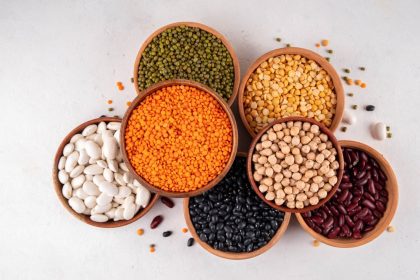When award-winning pastry chef Maya Rodriguez discovered her egg allergy in 2023, she feared her baking career might end. Instead, she uncovered a world of innovative alternatives that transformed her approach to pastry making. “These substitutes opened up entirely new flavor possibilities I hadn’t considered before,” Rodriguez tells PEOPLE.
Her experience mirrors a growing movement in professional and home kitchens across America, where bakers seek alternatives to traditional egg-based recipes. Recent food industry data shows demand for egg alternatives rose by 78% in 2024, driven by dietary restrictions, environmental concerns, and rising egg prices.
A culinary revolution in your kitchen
Professional bakers have discovered that Greek yogurt brings unexpected richness to baked goods. This protein-rich alternative adds a subtle tanginess that enhances chocolate-based recipes particularly well. Pastry experts recommend using full-fat varieties for optimal results, noting that the higher fat content creates a more tender crumb in cakes and muffins.
The magic of bean water
Aquafaba, the liquid from canned chickpeas, has become a revelation in professional kitchens. This formerly discarded ingredient whips into peaks just like egg whites, creating ethereal meringues and perfectly structured macarons. Professional bakers note that reducing aquafaba slightly concentrates its proteins, resulting in even more stable results for demanding recipes.
Nature’s sweetness
Applesauce brings natural moisture and subtle sweetness to baked goods. Professional bakers particularly praise its ability to create ultra-fudgy brownies with reduced fat content. Some pastry chefs create their own fruit purees, experimenting with pear sauce or prune puree for unique flavor profiles and enhanced nutrition.
The silken solution
Silken tofu’s versatility has made it a staple in professional vegan bakeries. Its neutral flavor profile allows other ingredients to shine while providing structure and moisture. Pastry chefs recommend pureeing silken tofu until completely smooth for the best texture in finished baked goods.
Ancient seeds, modern solutions
The transformation of flax seeds into a binding agent represents centuries-old wisdom meeting modern baking needs. Professional bakers prefer golden flax for lighter-colored baked goods, noting that the meal should be freshly ground for optimal results. This ingredient adds beneficial omega-3 fatty acids and fiber to recipes.
Asian inspiration
Mung beans have revolutionized egg alternatives through innovative processing techniques. Professional chefs praise their protein content and versatility, particularly in savory applications. Some high-end restaurants now create their own mung bean-based alternatives, customizing the seasoning for specific recipes.
Texture innovation
Firm tofu’s ability to crumble and absorb flavors makes it invaluable in savory baking applications. Professional chefs enhance its egg-like qualities through careful seasoning and cooking techniques. Some recommend pressing the tofu first to achieve optimal texture.
Scientific solutions
Commercial egg replacers represent years of food science research, offering consistent results in various applications. Professional bakers often keep these products on hand for last-minute substitutions or when specific dietary restrictions must be met.
The art of adaptation
Professional bakers emphasize that successful egg replacement often requires adjusting other recipe components. Moisture levels, leavening agents, and mixing techniques might need modification when using alternatives. Understanding these relationships helps create superior results.
Beyond basic substitution
Modern pastry chefs increasingly view egg alternatives not just as substitutes but as ingredients with unique merits. This perspective has led to innovative recipes that showcase these ingredients’ distinct characteristics rather than merely mimicking eggs.
Temperature matters
Professional bakers note that many egg alternatives perform differently at various temperatures. Understanding these thermal properties helps achieve optimal results in different applications. Some alternatives work better in cold preparations, while others shine in heated applications.
Nutritional considerations
While eggs provide specific nutritional benefits, many alternatives offer their own health advantages. Professional nutritionists note that diversifying protein sources through various egg alternatives can enhance overall dietary quality.
Storage and shelf life
Different egg alternatives have varying storage requirements and shelf lives. Professional kitchens develop specific protocols for storing and using these ingredients to maintain optimal quality and prevent waste.
Cost considerations
While some egg alternatives may cost more initially, professional bakers note that bulk purchasing and proper storage can make them economically competitive with eggs, especially considering recent egg price fluctuations.
Future innovations
Food scientists continue developing new egg alternatives, with recent innovations focusing on improved functionality and nutrition. Professional bakers anticipate even more options becoming available as research advances.










